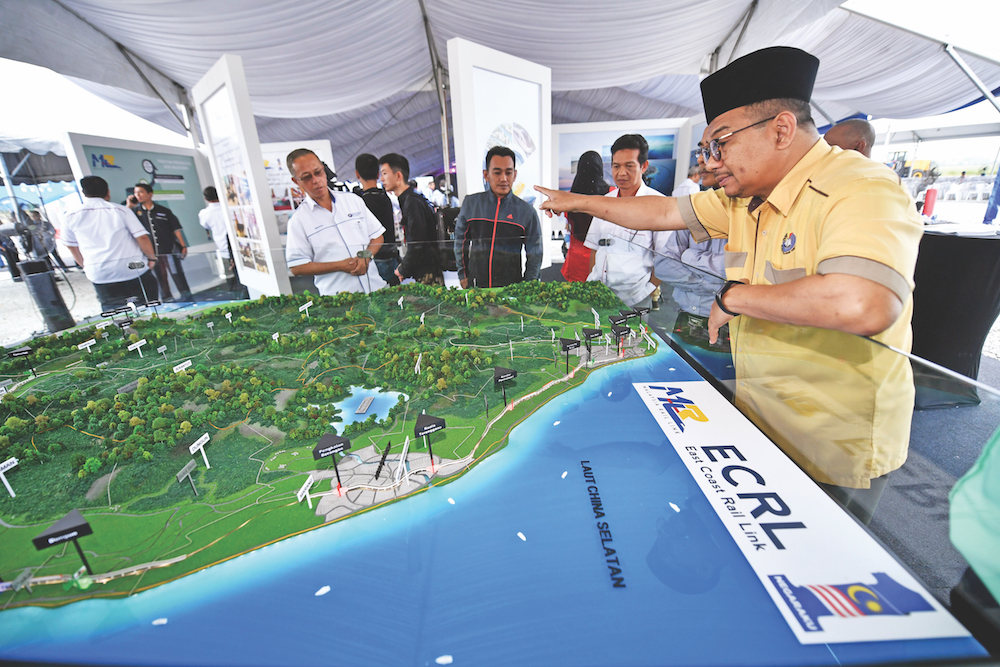KUALA LUMPUR, Aug 23 — A DAP deputy minister defended today the government’s decision to axe the East Coast Rail Link (ECRL) project, saying Prime Minister Tun Dr Mahathir Mohamad had acted on public sentiment.
Senator Liew Chin Tong said the 14th general election results signalled opposition against the various suspicious financial deals undertaken by the previous government, chief among them being the ECRL and the Kuala Lumpur-Singapore High Speed Rail (HSR) link.
Liew was responding to comments made by MCA deputy president, Datuk Seri Wee Ka Siong, who accused the DAP leader of being “anti-China” for opposing the two projects during the Balakong state seat by-election campaign trail, of which both parties are contesting.
“When I opposed to the ECRL project in early 2017, MCA and some Chinese media attacked me for being ‘anti-China’,” the DAP leader said in a statement.
“I told those who were concerned that such attack won’t gain MCA any votes as all Malaysians, ethnic Chinese voters included, are against anything that is financially suspicious and that is somewhat linked to 1MDB.
“The GE14 results show that I was right. Dr Mahathir was just acting on the Malaysian public sentiments when he cancelled the ECRL project... I urge MCA Deputy President Wee Ka Siong to save his previous time and not flog a dead horse,” the statement added.
Liew said he was among the first few politicians who had openly opposed both the ECRL and HSR when the projects were mooted several years ago because of the huge costs involved. Both projects were valued at more than RM100 billion.
Critics, including Liew, argued the two projects would have had little impact on connectivity or regional strategy.
Barisan Nasional (BN) leaders believed the economic spillover from the ECRL and HSR would have been triple the cost value.
Then prime minister Datuk Seri Najib Razak mooted the idea of a KL-Singapore HSR in 2010 but Singapore only agreed to the idea in 2013, after much persuasion.
As the HSR involved Malaysia and Singapore, the Najib government was unsure if the project would eventually go to a China contractor. Japanese, Korean and French contractors were also interested.
The financing of the two projects was also littered with discrepancies, detractors had alleged.
Despite being trumpeted as a “game-changing mega-scale project”, the ECRL was never featured in past transport planning, Liew noted.
Like the HSR, the two projects were also hastily implemented without open tender, the DAP leader added.
Malaysia had originally hoped that the HSR would begin work in 2014 and be completed by 2020, but the project only commenced in August 2017 after the deal with a Chinese developer fell through, prompting suspicion.
Some critics, like Liew, alleged BN had wanted the two projects rolled out to cover the debt stemming from the financial scandal at state fund 1Malaysia Development Bhd (1MDB).
Dr Mahathir announced in Beijing two days ago that his government will cancel the ECRL and other projects that the previous government awarded to Chinese firms as China’s President Xi Jinping has agreed with Malaysia’s stand.
The negotiation of compensation and other issues will be handled by government officials and the Chinese companies involved, the prime minister told reporters at the end of his five-day official visit to China.



















